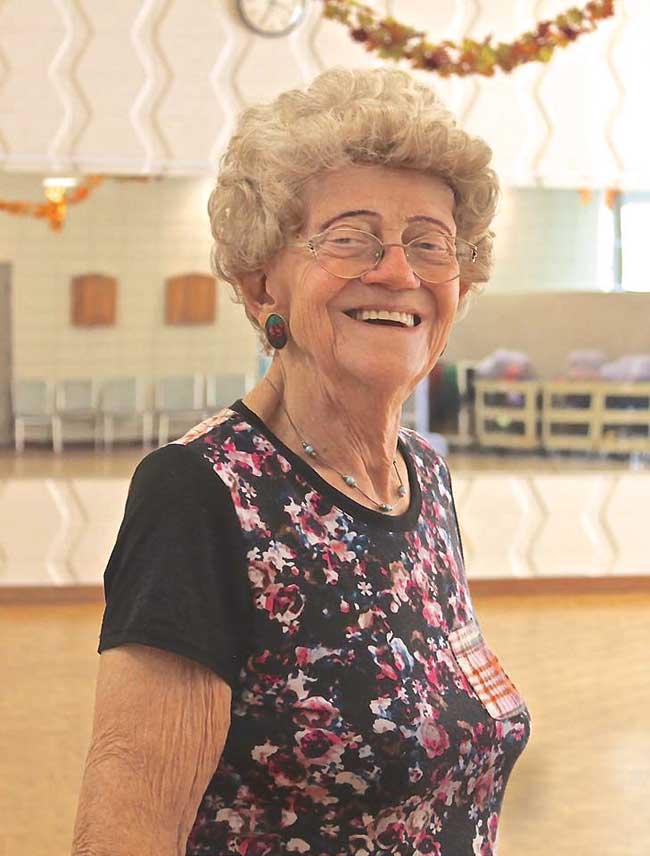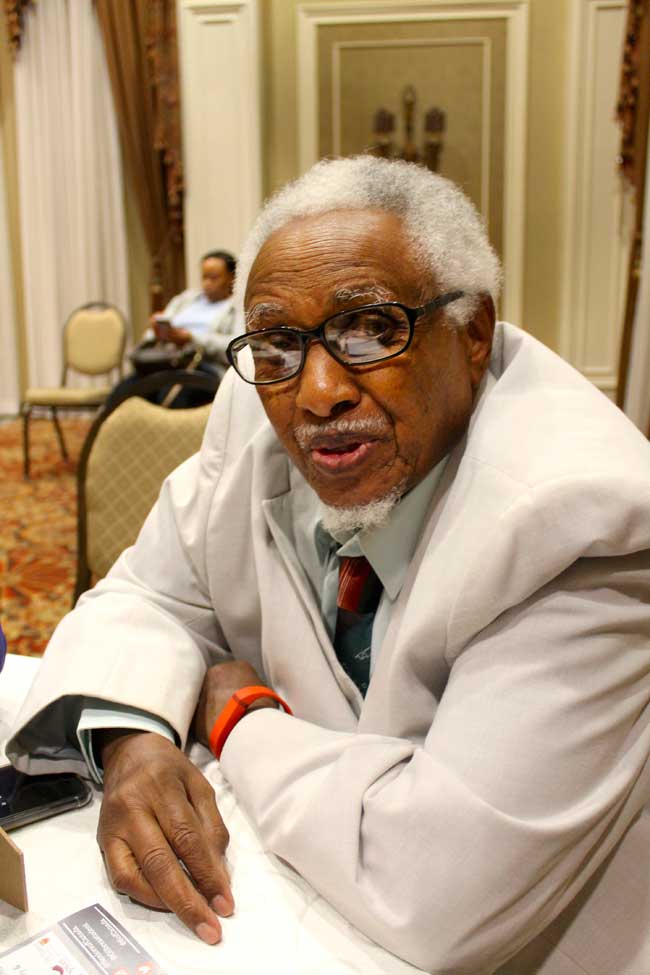The senior lying in the hospital bed, patient caregiver with saintly smile alongside. The laughing seniors, typically Caucasian, with the pearly-white teeth, eating salads or playing Frisbee on the beach, possibly with a blue pill somewhere in the foreground. Each image has come to represent a binary of portrayals of seniors in modern society. The problem? We never see the vast spectrum in between.
Now a group of 20-something graduate students from the Gilbrea Centre for Studies in Aging at McMaster University has taken action with a photography project on Instagram and Facebook. It’s called Seniors of Canada.
Inspired by the hugely successful Humans of New York project, in which photographer Brandon Stanton uses candid pictures and quotes to call attention to the stories of ordinary New Yorkers, Seniors of Canada captures everyday seniors doing everything from playing dominoes to hanging out at home. After a successful pilot in Hamilton, the McMaster team is taking the project national with a new website at SeniorsofCanada.org.

what I was saying” (Photo: Seniors of Canada)
PhD candidate Stephanie Hatzifilalithis says that the project originated as a way to connect more closely with the people they were studying. “We get so wrapped up in the theoretical content of our field that the very subjects of our interest – seniors – becomes this periphery,” says Hatzifilalithis, whose academic work focuses on intergenerational relationships. She was inspired to go into the field by a close relationship with her grandfather.
Project co-lead Rachel Weldrick, a fourth-year PhD student studying social isolation in urban contexts, says they also wanted to alleviate the fear of aging.
“We wanted to show younger people that aging and older adulthood can take many forms and that life after 65 does not have to be defined by a laundry list of inabilities.” She adds that there’s an equal concern about self-perception among older people. “We know through existing research that in many cases, older people actually internalize negative stereotypes about aging or being a senior.”

They also wanted to do their bit to combat ageism, what Hatzifilalithis calls “the last acceptable prejudice” in today’s society. “We got fed up. We were a bit miffed about it. We were, like, you know what? We can do better,” she says.
To avoid offending the community they set out to help, the team started by striking a focus group of seniors in their community, who were highly enthusiastic.

After securing a small grant from the School of Graduate Studies at McMaster University, they put the word out in the community and – waited. Again, they didn’t want to be presumptuous.
“We didn’t really want to say, ‘Oh, you’re a senior. Here, let me take your picture,’” recalls Hatzifilalithis. Fortunately, the emails started coming in, and so the team spent the year heading off to their subjects’ locations of choice, from the YMCA to the tennis courts. There they would spend hours chatting, to capture their stories as well as their photographs.
Besides posting the stories online, the team also hosted a photography exhibit at a local brewery, which was also well received by the city and the community of seniors.
“All the pictures we’ve taken so far, everybody loves them,” says Hatzifilalithis.
Asked if there were any surprises from the project, Hatzifilalithis says that if anything they thought the seniors might push back on posting their pictures online. “We thought there would be hesitation, but there wasn’t.”
In fact, it was the seniors who suggested what might be the next phase of the project: video.
